In recent years, TED Talks have almost become synonymous with idea sharing. TED is a nonprofit organization that works towards spreading information, typically through quick presentations — TED Talks. TED’s slogan of “ideas worth spreading” promotes the mindset that anyone can have an idea, and that idea deserves to be heard by others.
“TEDx wants to provide people with an independently organized event with a TED-like experience … not everyone can go to a conference, so it’s giving a taste of the conference and giving them ideas they might not have thought about and the chance to learn and discuss,” says Lindsey Drozak, a research support analyst at MacEwan University and one of the lead organizers for the TEDx event.
Idea sharing movements aren’t new, but TED revolutionized the spread of information back in the early ‘90s. The conferences are widely known due to a formatting change that resulted in popular TED Talks being released online so they are available to the public for free. All of MacEwan’s TEDx talks are also available online.
“TED — and similar programs — are great at providing enlightenment to all sorts of people on all sorts of concepts and themes … I’m a big fan of any media or platform that opens our eyes, and ears, to new ideas, new peoples, and new cultures,” says Neill Fitzpatrick, one of the speakers and an instructor in the Bachelor of Communication Studies.
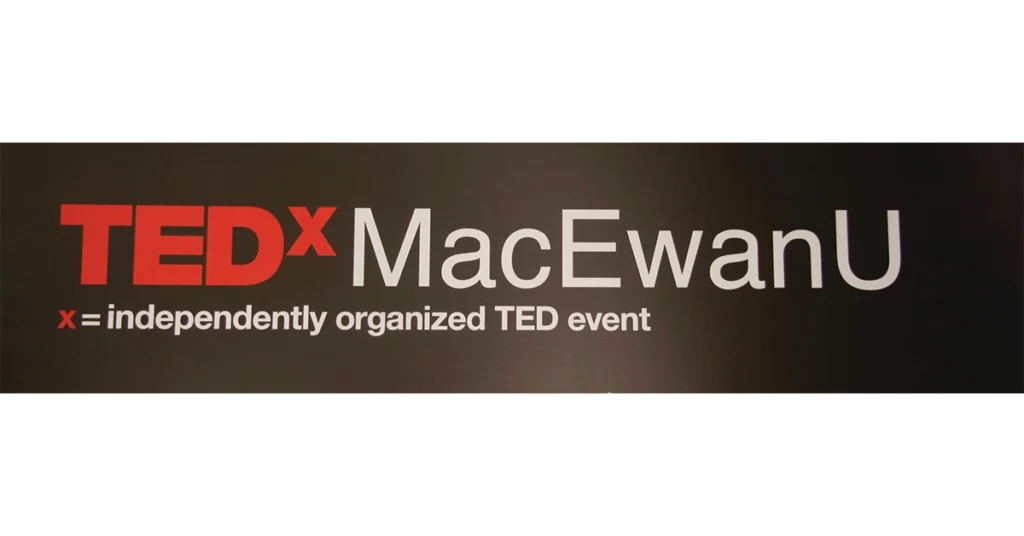
MacEwan is hosting its second TEDx event this coming year on Jan. 23. The theme is Truth Told, which provides a vast range of potential topics of discussion — something made more apparent once learning the presentation subjects. Because TED events are always interdisciplinary, the speakers at MacEwan’s event provide something to be learned by everyone.
“I’m really pleased that MacEwan is looking at such a diverse range of ways of looking at Truth Told, the different speakers and what they will be presenting, and also feel (appreciative) that they allow me to share something personal that I’m also very passionate about. The institution has been very supportive of my advocacy work and that means a lot to me,” says Petra Schulz, one of the speakers and a faculty member for the Bachelor of Applied Human Service Administration.
The speakers were nominated by the deans of different faculties and schools at MacEwan, as well as by SAMU. Through the nominations, the Research Council communications subcommittee voted on who would present. Speakers were not nominated or selected based on a thesis or subject of discussion. Instead, the person themselves was up for debate and the speakers came up with their topics after the fact.
“I can’t speak for how other people decided on their votes, but for me it was making sure it was interdisciplinary because I want to stay TED compliant so we don’t lose our licence. Also, having heard them speak or knowing that they’re faculty that students would want to watch influenced by vote as well,” says Drozak.
The event will range from three to three and a half hours and should provide audiences with presentations that promote discussion and shed light on subjects in new ways — as well as offer some entertainment.
“The aim is really to make people think about things they might not have normally thought about, and get outside the bubble a bit. I would hope that the event and at least one if not all of the talks would challenge you to think about things in new ways,” says Drozak.
TED events are meant to spark conversations, allow for networking — including mingling with faculty members — and the event will host two forms of entertainment (one is musical, the other a surprise) and provide refreshments. TEDx talks in particular appeal to people of any knowledge base and are far more casual than other learning experiences.
“TEDx is different (from lecturing) because it’s a really broad audience, so I think that’s the challenge, making it accessible for people who are experts in the area (as well as) people who don’t really know anything about the subject or how the brain works,” says Dr. Rodney Schmaltz, one of the speakers and an associate professor in the department of psychology.
Idea-sharing events are often used to bridge the gap between academics (or scholarly professionals) and the general public. Through the forum, as well as the laid-back atmosphere, the speakers can reach a far wider audience than through any other kind of conference.
“We must engage the public and I think idea-sharing movements like TED are accessible. As an archaeologist I feel like we are losing the battle against sensationalized pseudoscience and must use any and all forms of media to get our ‘truths’ about what we do out there,” says Dr. Katie Biittner, one of the speakers and an assistant professor in the department of anthropology.
TEDx at MacEwan is open to the public for $50 a ticket, but students can get discounted seats for $25. Tickets are available now, but seating is limited, so any students who wish to attend the event should purchase their tickets as soon as possible.
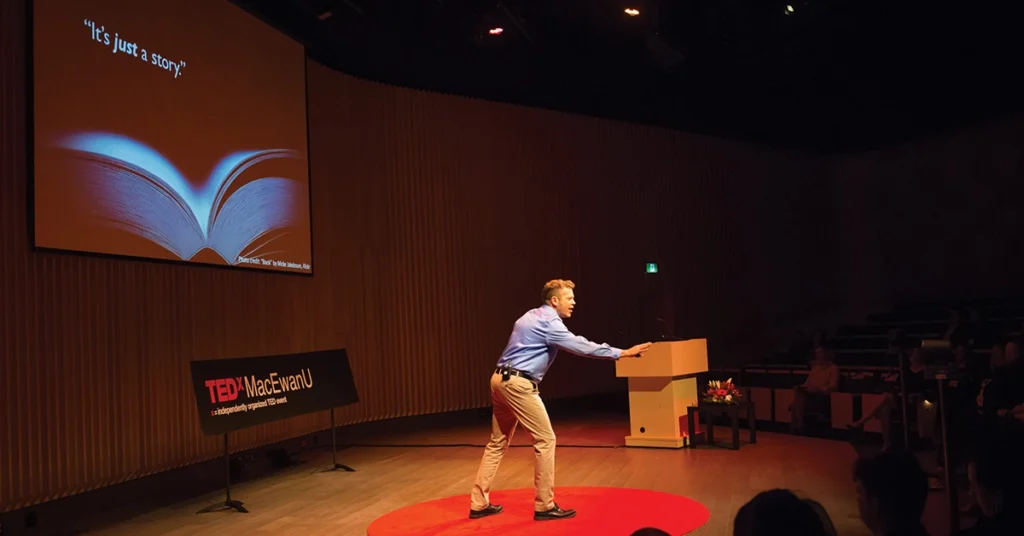
Petra Schulz
“My talk will be a little more personal. I am talking about our experience of our youngest son (overdosing) in 2014, and what I want to say, one of the big messages is that too many people use and are alone because of stigma and shame. They keep their substance use from people around them, and it’s very difficult for people to help. And talking about our family’s decision to be open, and tell the truth about his cause of death and the reaction we had with that, how many other people came forward and shared the same kind of truth.”
Schulz is excited to present to a diverse audience in an interdisciplinary environment. She says that students in particular need to know the underlying issues related to drug use, in particular the effect the opioid crisis has had, and is having, on almost every Canadian. She wants students to walk out of her talk equipped with the knowledge to ask the right questions and provide the right messages to those in need — as well as promote the idea that there is no need to hide struggles, and that help is always available.
“I’m very passionate about this subject, and I can always talk about our son.“
“The aim is really to make people think about things they might not have normally thought about, and get outside the bubble a bit. I would hope that the event and at least one if not all of the talks would challenge you to think about things in new ways.”
— Lindsey Drozak
Neill Fitzpatrick
“The line that separates fact from fiction used to be pretty clear, but it’s become increasingly fuzzy in the past few years thanks to the social media meanderings of Donald Trump and others. Still, I like to think — and the research shows — that more and more people are crying out for someone to rip through the rhetoric and find the facts. Trusted news organizations such as The New York Times and the CBC are doing what they can, and online subscriptions for The Times are increasing, yet journalism remains under fire. Journalists remain untrustworthy in the eyes of many. So, what’s the answer? What can journalists do to restore the faith? How can all of us defend the truth? This is a rough outline of what I will discuss at TEDx.”
Fitzpatrick is looking forward to the conversational aspect of his talk, and hopes to reach people from many different backgrounds. He says that his journalism students should be more equipped to tell stories filled with factual and reliable information, but that non-journalists need these skills just as much to filter out rhetoric and see facts.
“I like TED Talks as a concept because it exposes more people to more ideas that they might otherwise never hear.”
Dr. Rodney Schmaltz
“I’m going to be talking about some of the biases that can lead us astray when we’re trying to make decisions, and I’m going to be talking about how we process information. I’m going to be focusing on why people believe in things that might not have a lot of evidence. The goal of my talk is to show that we can all fall prey to some claims that might not be supported by good evidence, it’s just part of the way we’re hardwired. So I’ll show where some of these biases are, and then I’ll explain why they happen and how to prevent them from happening.”
Along with knowing how to identify and overcome biases, Schmaltz hopes to show audiences the importance of teaching young people how to differentiate good information from bad, to put it simply. He says that although students are encouraged to think critically, no one really teaches them how, and this needs to change.
“I’m going to focus on more scientific skepticism, in the sense that if you see a claim, does it stand up to the scrutiny of scientific rigor, and why we need to teach kids that, and teach kids how to determine if a claim is valid or not.”
Dr. Katie Biittner
“I will be talking about being accused of witchcraft by people from the village I was working in. This accusation led me to re-learn several truths: about my discipline’s role in colonialism, about myself as an individual with privilege, and also about what it means for something to be ‘true’ from a cross-cultural perspective.”
Biittner is thrilled to be presenting, and wants to engage students with her story. She hopes the audience will leave her talk with a greater understanding of privilege and the role academics play in the world.
“I think my ‘truth told’ is important to students because it shows how our own truths change as we experience the world.”
Keestin O’Dell
“I’m going to be talking about the topic of Indigenous masculinities, the way that it’s been perceived, created by mainstream media, and what that leads to in terms of reconciliation. And looking at Indigenous masculinity, identity, through an Indigenous lens, and decolonizing the idea of what Indigenous masculinity means to others.”
O’Dell hopes that students will leave his talk with a better understanding of how colonialism has affected multiple aspects of people’s lives, and how the destruction of Indigenous people and culture means a necessary reframing of thought when interacting with these communities. He wants the audience to think about the images of Indigenous masculinities in the media (for example, Jacob in Twilight or John Redcorn from King of the Hill) and understand that “how that image of the warrior, or the savage, or the angry or hyper-masculine came to be, and how living up to the colonial standard of Indigenous masculinity or Indigenous identity is really harmful for Indigenous people.”
“Come with open ears, open hearts as well.”
Jason Garcia
“I will be speaking to the importance of trauma-informed, anti-oppressive practices as a survivor-centred mechanism in sexual violence response while speaking to the direct experiences of highlighting the importance of such in my role as Volunteer Manager at the Sexual Assault Centre of Edmonton (SACE), along with parts of my own narrative as a survivor.”
Garcia wants audiences to understand the importance of not only believing survivors, but also supporting them in a way that is helpful and avoids triggering them. Garcia hopes people will leave the talk with an understanding of survivors’ healing journeys as an individual experience.
“My hope is that by TEDx talks like myself and Keestin’s … inherently reveal that you don’t always need a PhD to share a story, but passionate cravings to share the truths that make people uncomfortable, but worthwhile listening to!”
Photography supplied.

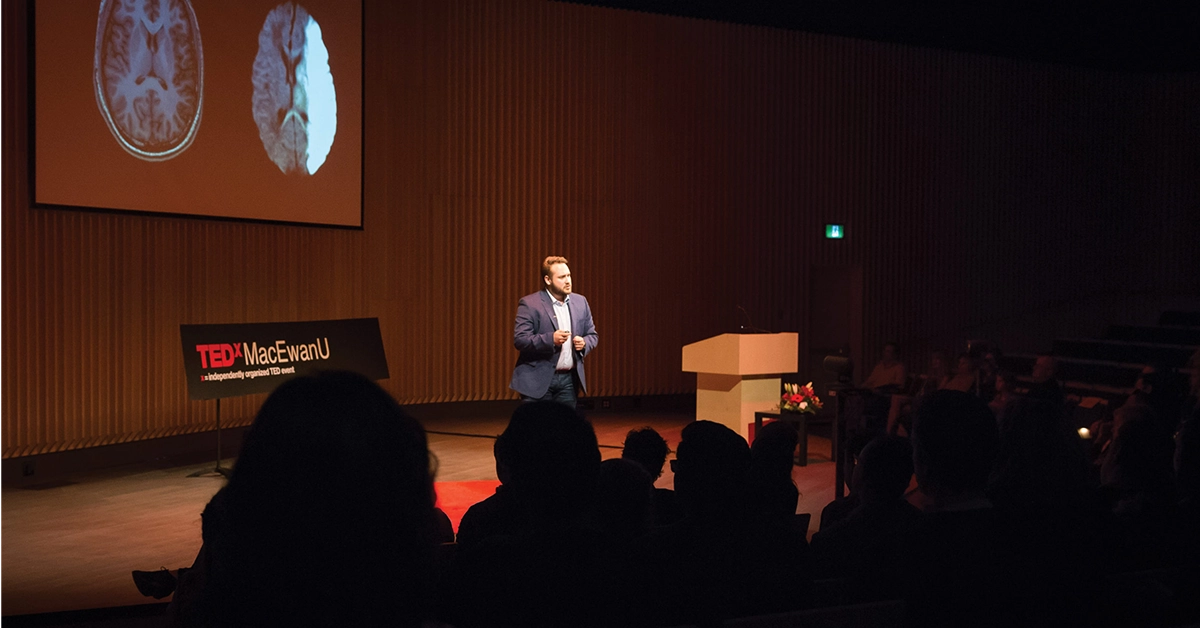
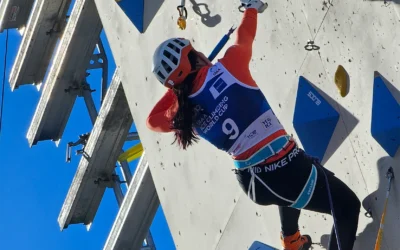
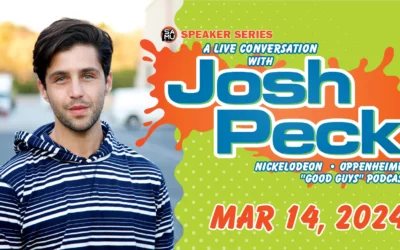
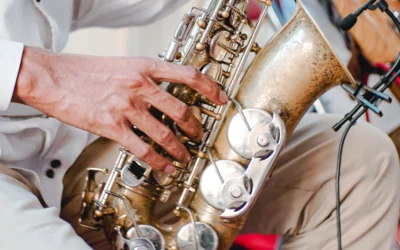
0 Comments